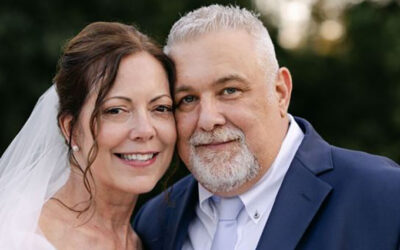Losing one hour of sleep can be a pain. It can also take a toll on your health if you aren’t careful.
Each spring, daylight saving time means we turn our clocks forward one hour (it falls on Sunday, March 10, in 2024). We lose an hour of sleep, but we also gain an hour of sunlight in the afternoons before the sun sets.
While sacrificing that extra sleep for a whole season of brighter afternoons (and not having to commute in the darkness after work) seems like a positive, it can have downsides for your general health.
According to Johns Hopkins, it can affect your mood, stress levels and alertness. The research university also found that exposure to sunlight closer to the time when you are likely to go to bed can mess with your circadian rhythms, making it harder to fall asleep at the usual bedtime and reducing restful sleep each night.
Here’s How You Can Prepare for the Time Shift
The American Academy of Sleep Medicine suggests in the days leading up to daylight saving time:
- Gradually move up your bedtime 15 to 20 minutes earlier in the nights before to help you adjust.
- Change your clocks on Saturday evening and go to bed at what would be your normal bedtime based on the adjusted time.
- On Sunday, welcome the day first thing by getting outside for a dose of early morning sunshine. It will help you get out of that grogginess faster.
- Once the day is over, make sure to use Sunday night to get a full and restful sleep. That will help set you up to start the week strong.
Good Sleep Means a Healthy Heart
A restful sleep doesn’t just help you face the day — it’s good for your heart, too.
Andrew Smith, MD, a cardiologist with Our Lady of the Lake Heart & Vascular Institute, says he has focused more on his patients’ sleep patterns because he’s found an alarming amount don’t have good sleep hygiene.
They watch TV or look at their phones — often in bed — then try to go right to sleep. Plenty of studies have shown the effect of TV and smartphone light (blue light) on sleep.
“They are not getting that really restorative sleep they need,” Dr. Smith says. “I ask patients to take a two-hour window prior to sleep with no electronics, no iPad, no TV, and even if they are sleeping the same amount, their sleep quality is usually much better.”
Good sleep hygiene has been shown to reduce the risk of type 2 diabetes, hypertension and other health conditions, Dr. Smith says.
More Ways to Improve Sleep
Tyler Boudreaux, MD, of the Our Lady of the Lake Physician Group Men’s Health Center, offers several tips for men and women to get a better sleep:
- Stick to a routine, aiming to go to bed at the same time every night so your body will naturally fall into this rhythm over time.
- Avoid distractions in the bedroom, such as a TV or phone. Not only does the glowing blue screen have adverse effects on sleep, being active on your phone keeps your brain from truly resting.
- Incorporate relaxation techniques, like breathing exercise, meditation, light stretches or calming music.
- Avoid alcohol, which can make you restless throughout the night and fatigued the next day.
- Avoid late-night eating and drinking caffeine, which can cause discomfort as your metabolism slows down at night.
Talk to your doctor about any ongoing sleep problems. “Problems with sleep can also indicate some underlying conditions, too,” Dr. Boudreaux says.




